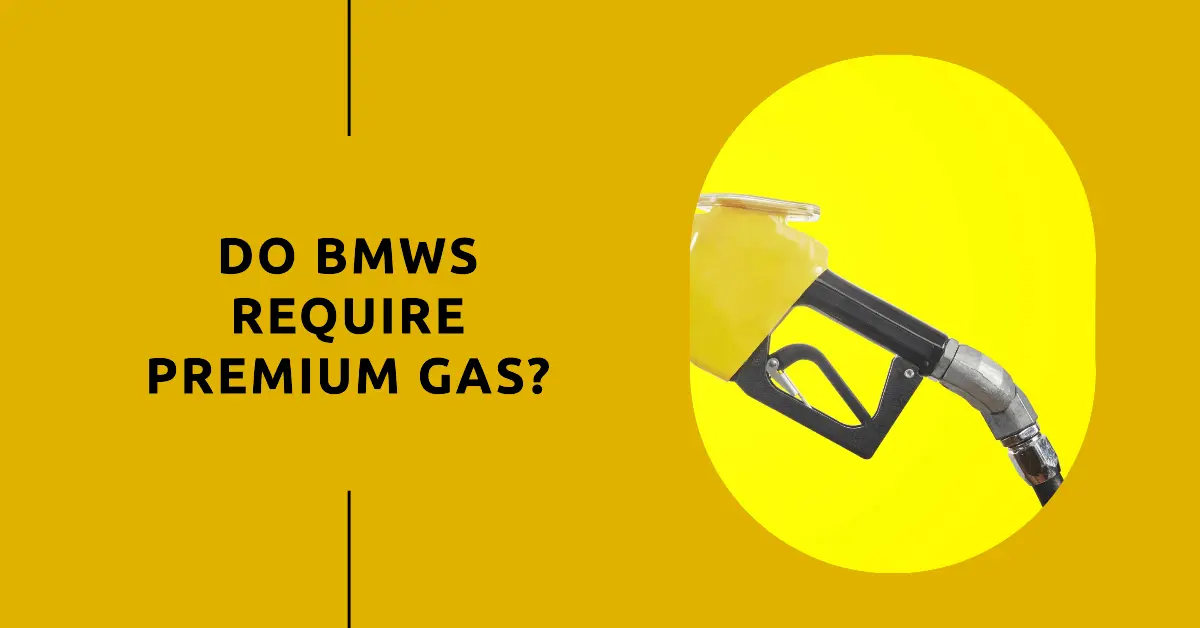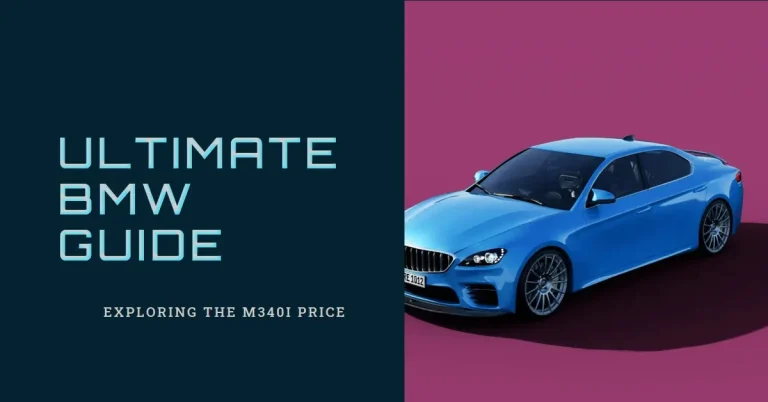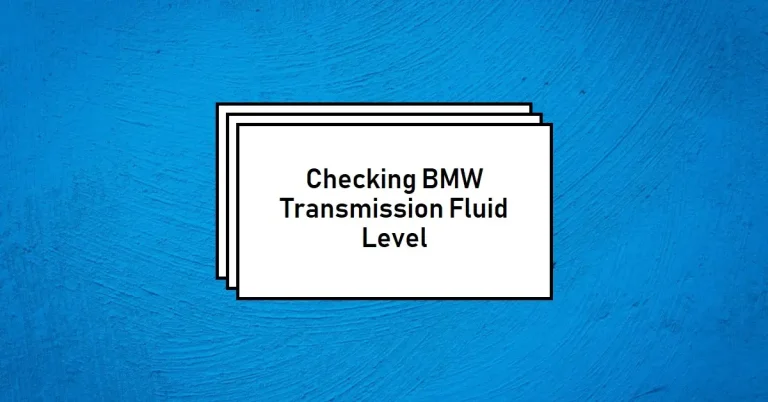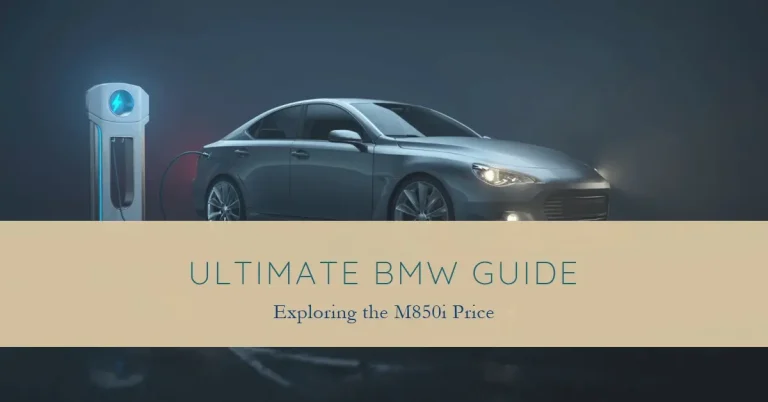Do BMWs Require Premium Gas? Needs for Optimal Performance.
BMW has built a reputation for being the ultimate driving machine – delivering a luxury driving experience defined by superior handling, comfort and performance. But what kind of fuel does it take to unlock a BMW’s full potential? That’s where an ongoing debate emerges around using premium versus regular gasoline in these ultimate driving machines.
This article will analyze if BMWs really require high-octane premium fuel or if drivers can get away with using cheaper regular gas without sacrificing performance. We’ll examine the science behind engine knock, what octane ratings mean, and the direct impact premium versus regular gas can have on BMW vehicles over both the short- and long-term.
Armed with this comprehensive knowledge, BMW owners can better understand exactly what fuel grade is best to fill up with for optimized efficiency, power and engine preservation.
Why BMW Recommends Premium Gas
Premium gasoline differs from regular in that it has a higher octane rating, generally at least 91 octane as opposed to 87 for regular gasoline. This octane rating refers to the fuel’s ability to resist ‘engine knock.’
Octane Rating Comparison
| Fuel Type | Octane Rating |
| Regular Gasoline | 87 |
| Midgrade Gasoline | 89 |
| Premium Gasoline | 91-93 |
Engine knock occurs when fuel ignites prematurely inside the engine’s cylinder, causing reduced performance and potentially serious engine damage over time. Premium fuels with a higher octane rating are more resistant to self-igniting under pressure, instead burning more slowly and evenly for smoother, more efficient engine performance.
Premium gasoline, with an octane rating of 92, ensures a slower burn, preventing engine damage from premature fuel ignition inside the engine.
This matters greatly in performance engines like BMWs where ignition timing is optimized for maximum horsepower and acceleration. Using lower octane fuels in these engines can lead to persistent knocking and reduced efficiency. That’s why BMW strongly recommends using nothing less than a 91 octane premium fuel.
The Impact of Using Regular Gas in a BMW
Filling up your high-performance BMW vehicle with lower 87 octane regular gasoline instead of premium 91+ gas can seriously inhibit engine functions in multiple ways:
- Engine Knock – Without premium fuel’s higher knock resistance, persistent knocking can occur inside the cylinders disrupting combustion and performance.
- Power Loss – The engine computer may automatically retard ignition timing to prevent knock which reduces horsepower and throttle response considerably.
- Long-Term Wear – Premature ignition of fuel eventually causes cylinder hot spots and carbon build-up decreasing compression and leading to lower fuel economy.
Using regular gas continuously in most late model BMWs will trigger ‘service engine soon’ lights indicating fuel-related issues. Prolonged use can require costly repairs including fuel system cleaning.
Switching to premium gasoline and addressing issues swiftly best avoids expensive long-term engine damage when regular gasoline is used.
Case Studies: Premium Gas vs Regular Gas in BMWs
Hearing from other BMW drivers who have used both regular and premium gasoline provides some excellent anecdotal evidence on the real-world differences:
“I accidentally filled up my 2009 BMW 335i with regular gas instead of premium. Within 10 miles I noticed annoying engine knock and throttle response was down even though I floor the pedal. Power delivery is so smooth with premium. I learned my lesson!” – Steve, 2009 BMW Owner
“To save money, I tried using regular gas instead of premium in my BMW X3. After a few tanks, acceleration lagged considerably until I angrily punched the pedal, ending up with loud engine knock. Switched back to premium gasoline and performance returned to normal almost instantly.” – Michelle, BMW X3 Owner
Using regular gas in a BMW can lead to 10% less power and efficiency based on real-world driver accounts.
While some claim trying regular gasoline in BMWs causes no issues, the majority of accounts surface reduced throttle response, engine knocking, decreased fuel economy and sluggish performance compared to filling up with higher quality premium gasoline. Most drivers swiftly switch back to premium after only a couple of tanks using regular gas.
How to Choose the Right Gas for Your BMW
Recommendations do differ slightly across BMW models on appropriate fuel grade. Some engine configurations spec higher performance tolerances demanding premium, while lower horsepower motors can sometimes manage with midgrade gasoline in a pinch:
- Most 3, 5, 6 and 7 Series models produced after 2016 call for premium 91+ octane gasoline for proper knock resistance.
- Entry-level 2 series vehicles generally tolerate mid-grade 89 octane gasoline without issue depending on configuration.
- Hybrid BMWs like the ActiveHybrid 3 and 7 still require premium fuel for maximum efficiency despite some gas-electric powertrains.
When in doubt, consult your vehicle’s owner’s manual on recommended gasoline octane ratings to ensure ideal performance and avoid any engine problems before they occur. As engine technology improves in newer model years, BMW leans increasingly toward premium fuel requirements across all model lines.
Adhering to the car manufacturer’s fuel selection guidelines ensures unlocking your BMW’s maximum performance and efficiency over the long haul.
What to Do If You’ve Used Regular Gas in Your BMW
Accidents happen, and you might find regular unleaded gasoline flowing into your BMW’s tank before realizing it. First, try not to panic. Here are tips on what to do next:
- Safely drive home or the nearest BMW service center. Avoid accelerating hard or revving the engine.
- Schedule BMW service to drain the regular gasoline from the tank. Never attempt to drain the tank yourself.
- Mechanics will likely recommend adding BMW fuel cleaner to remove any buildup or residue from injectors and cylinders. Costs vary from $100-$400 depending on vehicle model and condition.
Using a full tank or two of regular gas in most late model BMWs shouldn’t incur any major repairs provided you switch back to premium gasoline promptly. Seeking professional advice provides peace of mind.
Only if persistent knocking or notable loss of power occurs after refueling with premium gasoline might cylinder compression testing or engine disassembly be recommended down the road. Fortunately these invasive fixes are rarely needed from using regular gas just once in most BMWs.
FAQs: Fueling Your BMW for Optimal Performance
Do all BMW models require premium gas?
BMW recommends premium fuel for most models, especially more recent vehicles. Some base-trim sedans or Minis built before 2015 can tolerate midgrade gasoline. When in doubt, check your owner’s manual on fuel requirements.
Can occasional use of regular gas damage my BMW?
Using regular gas now and then shouldn’t incur permanent damage. However, continuous use will take its toll over time and hamper performance until addressed. Always refuel with premium afterward.
Is there a noticeable difference in performance using premium vs regular gas?
Absolutely there’s an acceleration, throttle response and power advantage when using 91+ octane premium fuel as recommended by BMW to maximize each engine’s potential and knock resistance. Lower octanes simply can’t reliably keep up.
While your BMW was engineered to run optimally on premium fuel, always refer to your vehicle’s manuals for definitive fuel grade guidance or consult your BMW service department for recommendations.
Conclusion
BMW credentials an ultimate driving experience defined by power, precision handling and unmatched refinement over the years. Unlocking any model’s complete performance potential requires proper maintenance plus using premium 91+ octane gasoline recommended across most model lines.
Lower octane fuels invite engine knock, power loss, inconsistent throttle response and long term internal wear that hampers your investment. By only using top-tier gasoline, BMW engines operate reliably at their peak while safeguarding longevity with smooth combustion cycles for hundreds of thousands of miles.
Your BMW still provides an incredible driving experience even on regular gas. But always refuel with premium to fully enjoy that heralded BMW power and handling locked within every model just waiting to be unleashed. Consult your owner’s manual, talk to BMW service advisors and see what high-octane premium gasoline can truly deliver across your next exhilarating journey.







